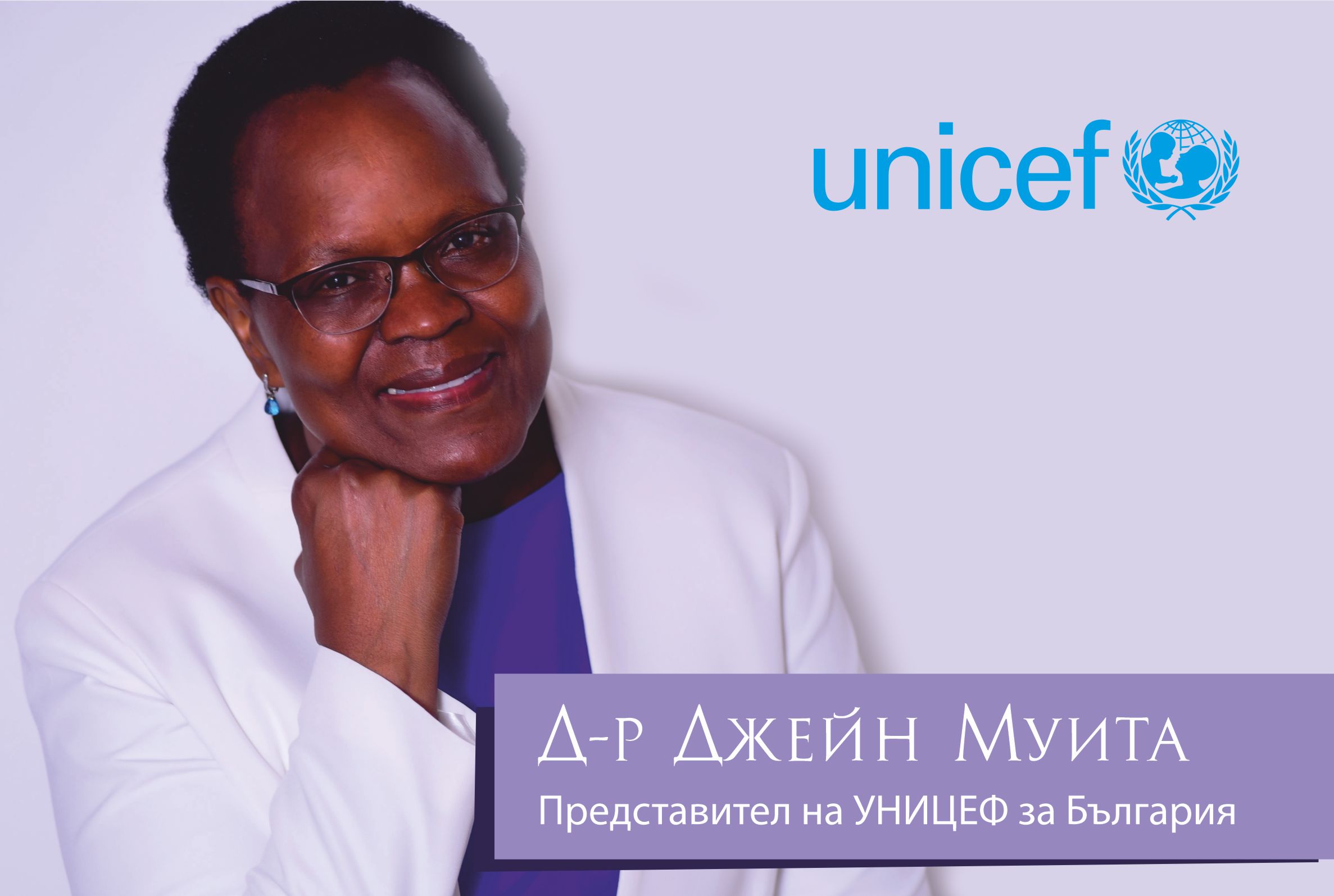Dr. Muita, what is UNICEF’s mission in Bulgaria?
UNICEF works in over 190 countries to reach the most vulnerable children in the world and, together with state institutions, other UN agencies and businesses, protects their rights and helps them develop their full potential.
What are the UN Global Objectives for Sustainable Development and how does UNICEF work towards achieving these goals in Bulgaria?
Global objectives are the United Nations plan to achieve a sustainable and prosperous future. Children are the heart of the Objectives for UNICEF and we are therefore focused on the main aspects which have a direct influence on them: overcoming poverty, good health, quality education, reducing inequalities, living in peace, justice and having support from strong institutions.
What are the key UNICEF programming areas?
After analyzing the situation in the country, the Bulgarian government approved our work in four main directions – early childhood development and care, education, child protection, communication and public advocacy. We support vulnerable families by providing individualized support, guidance and information. In 2019, more than 6500 children aged 0-3 took advantage of the home visit services. We are developing new flexible forms of early education to meet the needs of vulnerable children and families and we have reached up to 119 000 children in the past year. Through the advocacy centers in Sofia, Shumen and Montana, we provided protection and legal services and supported 7500+ children. We have given psychosocial support and material assistance to more than 380 refugees, migrant children and their parents. This year, in response to COVID-19, the Fund used its various channels to share reliable information, and we reached 4 658 349 people. For this activity we were honored by Facebook as one of the Recognised Health Organisations.
What are the priority activities of the Fund for 2021?
The situational analysis of the impact of business on children’s rights in 2020 gave us a clear direction of our line of work. We are already actively building partnerships with both industry and business associations, We develop specific projects with individual companies that respond to the received recommendations, in order to achieve better results for each industry. Together with the University of Sofia, we continue to train experts from the business and civil sector to protect children’s rights and achieve the Global Goals.
How can companies and business associations partner with UNICEF for their implementation?
UNICEF and business have the potential to improve the lives of children and young people. Our goal is to create real partnerships with shared values, which combine the resources and experience of both sides, while simultaneously increasing the social impact for children and the economic value of the business.
You finished 2020 with your first national meeting with business leaders. What did the participants focus on?
We are glad that we hosted the first meeting with the leaders of the business “Give2Grow”. The event is dedicated to those who work and live with a mission and by a cause. The participants saw and heard virtual stories by inspiring Bulgarian and international personalities, specific examples and practical guidelines on the 2020 topic – Inclusive education 3.0[1].
What are the challenges that UNICEF – Bulgaria is faced with in 2021?
The crisis caused by C-19 is not over yet. And next year we will continue to take care of the most affected children and young people – children with disabilities and those in a precarious family environment, those at risk of poverty, social exclusion and violence. We will not stop inspecting the economic crisis. We are working towards attracting fresh financial resources and support for the services that guarantee all children’s access to them.
As an expert partner of the Bulgarian institutions, organizations and companies, UNICEF will provide up-to-date information, identify the challenges and look for opportunities, creating new solutions for the protection and use of children’s rights.






